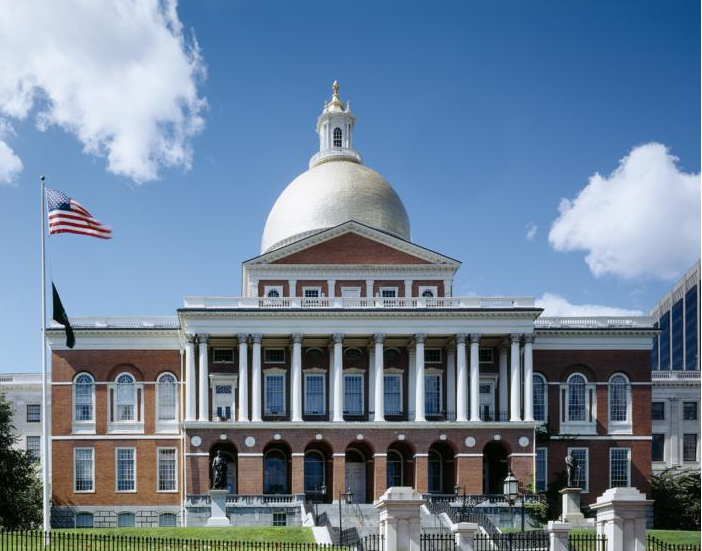A decade before the Declaration of Independence was signed, the Massachusetts Bay Colony became the first to construct a viewing gallery for the House of Representatives. Massachusetts created the gallery in recognition that the full exercise of democracy requires public access to legislative activity. In 1766, the colony was a leader in transparency. Yet in 2023, the Massachusetts State House is a leader in secrecy.
Massachusetts is the only state in the country where the legislature, governorship and judiciary are exempt from its Public Records Law. This law allows constituents and the press to access legislative voting records and documents such as meeting notes and communications. Due to this exemption, Massachusetts has been ranked as one of the least transparent states, and the Center for Public Integrity has given the state a grade of D+ regarding public access to information. The state government exemption alone is enough to show how little modern Massachusetts legislators value the democratic principle of transparency.
Massachusetts is also one of 11 states whose legislature claims exemption from the Open Meeting Law. This means that the public is not permitted to attend legislative body meetings. Additionally, constituents do not have access to records of how their legislators voted, which prevents any impetus for representatives to remain faithful to their pledges. According to the Inter-American Democratic Charter, one of the essential elements of representative democracy is free and fair elections, which is impossible without governmental transparency.
The lack of public access to the inner workings of the state house prevents voters from making informed decisions when voting in elections. When the public is kept in the dark about what their legislators are doing, it is much harder to know whether they are representing the interests of their constituents. This can lead to a decline in civic engagement and a weakening of the democratic system.
Secrecy can also be a breeding ground for corruption. When deals are made behind closed doors, it is easier for special interest groups to buy influence away from the eyes of the public. Each time these transgressions come to light, public trust in government is eroded.
Living within an atmosphere of distrust limits enthusiasm for contributing to the growth of a society. Without transparency, there is no means for people to verify that their interests are being fully acknowledged. The resulting uncertainty not only causes a lack of trust in the government but also stifles the innovation necessary to maintain it, which can lead to stagnation and inefficiency within our government.
The Massachusetts State House should be a place where the public can gather to learn about and participate in the democratic process. By denying the public access, it has become a bastion of secrecy. This secrecy is a threat to democracy and must be addressed.
Increasing transparency within the Massachusetts State House isn’t difficult. Exemptions from Public Records Law and Open Meeting Law should be repealed. This would allow the public and press to access documents and attend meetings, which would help hold legislators accountable for their actions and enable voters to make informed decisions.
The legislature should include the voting record for each bill on the state website Meeting Minutes and other applicable documents should be made available as well. This would provide a 21st-century viewing gallery, allowing constituents to get involved in the legislative process.
These steps would benefit all citizens and strengthen the democracy within Massachusetts. Duly elected politicians should be reminded that the Massachusetts Constitution clearly states that the government has an obligation to act for the benefit of the people. When the government fails to do so, the people have the right to petition for change.
It is far past time for Massachusetts to recommit to the sense of transparency that was upheld in 1766. Transparency is required for democracy to flourish, and it is a shame that the state that first promoted transparency undermined this value, threatening the democracy it so fervently once sought.
Brigid Baleno can be reached at [email protected] or followed on Twitter @BrigidCBaleno.


















